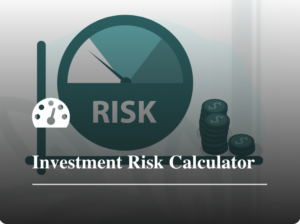As people, we like to divide our life into age-based milestones. At age 16 we can start driving a car. Age 21, we can go out and get drinks with our friends. In our 40s we’re “middle aged”. At 62 we can trigger our Social Security benefits. Age 65, we qualify for Medicare.
From our perspective, another critical milestone in life is age 50. From a personal standpoint, age 50 means you’re past your prime and likely beginning to think about life after work. For many, around this time is where certain financial responsibilities may be lessening. For example, student loans fully paid off or children likely moving away from home within the next 10 years if they haven’t already.
We also consider age 50 a key milestone from the standpoint of implementing important retirement strategies. This is a time to take a step back, take a breath, and take a full-scale look at where you stand as it relates to your life after work. This holds true whether you end up retiring at age 55, 65, or otherwise.
By taking the time to come up with a proper retirement plan at age 50 or thereabouts, you allow yourself to take corrective measures if you come across an aspect of your financial plan that isn’t setting you up for reaching your retirement goals.
This is a time to hope for the best but prepare for the worst. Below we overview three critical financial and retirement strategies to consider at age 50 as you take stock of where you stand.
1. Asset & Investment Risk
This is a time to look at potentially rebalancing how much risk is being carried by the money you’ve saved. It’s key to ensure your investments aren’t carrying too little risk and thereby not producing enough returns. That’s because it’s likely you’re still relying on these investments to grow a significant amount in the years leading up to retirement.
You also need to ensure that this money you’ve saved isn’t exposed to too little risk. That’s because you’re now at the point where you’ll relatively soon be relying on it as a major source of income in retirement.
Find Out Your Investment Risk Comfort Level
Would you like to know where your personal risk comfort level stands? Click below to get your investment “risk score”.
Here is where many fall into a trap. Those who reach age 50 and feel they are behind often are inclined to rashly ramp up their investment risk in the hopes of gaining greater returns. The thinking is that this is going to get them to where they feel they are back on track.
While this could work out favorably for some, it also puts them in a delicate position. In such case they could lose 10-20% or more of their savings if the market drops significantly. Now they’ve suffered a blow with consequences affecting the entirety of their retirement years and the goals associated with these.
This potential outcome makes it essential to sit down with your financial professional to review these two investment risk factors:
- Where are your assets currently positioned? Should they be repositioned so as to carry less, or, possibly, more risk? Of course, this should only be done in a responsible manner, possibly investing with downside protection.
- If you are behind, what ways can your financial advisor get you back in line with your retirement goals? How can they do that without taking on more risk? For example, could you be utilizing the provision of making catch-up contributions?
2. Debt Reduction
As mentioned at the outset, the half-century mark (I know, no one likes to think of their age in those terms) or thereabouts is a time where many are or soon will be experiencing a reduction in certain financial commitments. Children may be leaving the house, student loans are paid off, you may even be nearing the end of your mortgage term. Of course, each person or couple’s situation is different from the next.
Now, we don’t subscribe to the notion that all debt is bad debt.
We can use some forms of debt in a strategic manner to better help you reach your retirement goals. For example, let’s say buying a lake house is one of your retirement goals. Depending on where your income and financial needs lie at age 50, it may be that then is the time to look at making that purchase and getting a head start on realizing that goal instead of waiting ten years when your income situation may be quite different.
The debt we’re focusing on, however, is a form that is always bad–excess debt. This is the sort that could hinder you from realizing your plan and goals in retirement. To illustrate, suppose you’ve made an adjustment in your diet to eat healthier foods in order to reach a health or fitness goal. Though you’re eating healthier foods, if you’re eating too much of it, you could still be prevented from achieving that health goal. You’d need to begin shedding some of that excess food in order to do so.
Similarly, age 50 is a time to start shedding excess debt that could follow you into retirement and potentially derail some of your retirement dreams.
3. Life Insurance Cost & Your Physical Health
Speaking on the topic of making decisions for the sake of your physical health, we come to an area where your physical health and financial health intersect–insurance products.
At age 50, you may be in excellent physical shape and it can be easy to assume that at age 60 it’ll be more of the same. However, life doesn’t always accommodate our plans. On the flip side, even if you’re not in great shape at age 50, there is still plenty of time to take health-conscious corrective measures to physically and financially be in a better position to enjoy the life ahead of you.
The decisions you make in this respect have a direct impact on the cost of life insurance and long-term care (LTC) insurance. Often these are an integral part of implementing retirement strategies that lead to peace of mind.
It’s essential to remember that insurance premiums are primarily based on your age and how healthy you are. The younger and healthier you are, the lower your insurance premium will be, thereby allowing you to leverage this into a greater insurance benefit.
Implementing Your Age 50 Retirement Strategies
Are you at, approaching, or past age 50? How do you feel about where you stand looking ahead towards retirement? Are you unsure of how exactly to implement the financial and retirement strategies above? Would you like your own retirement plan which:
- Balances your investment risk at a level right for you
- Sheds excess debt as you approach retirement
- Protects your loved ones with the right insurance product for your situation?
If you’d like help implementing the above financial and retirement strategies or simply a second opinion on your existing retirement plan, click the button below to speak to a fiduciary financial advisor!


